- My Library Account
- Collections
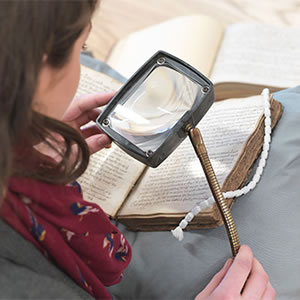
Collections
The Library provides access to books, electronic resources, archives, special collections, and more to support your learning and research.
- Research
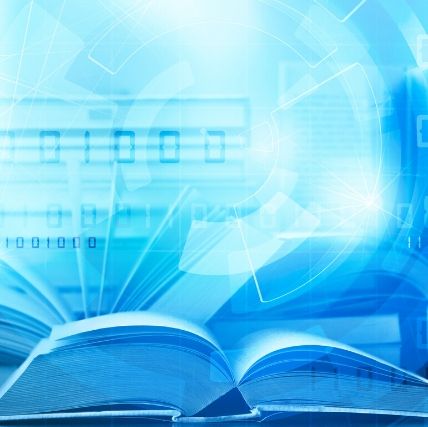
Research
The Library is committed to supporting your research needs with expert guidance and resources.
- Studying
- Academic Skills Service for Students
- Academic Writing Centre
- Assistive Technology Area
- Borrowing Limits, Lost Books & Fines
- Digital Literacy
- Equipment & More
- Group Study Rooms
- Library & IT Service Desk
- MakerSpace for Students
- Past Exam Papers
- Photocopying & Printing
- Shannon College Library
- Study Spaces
- Using Other Libraries
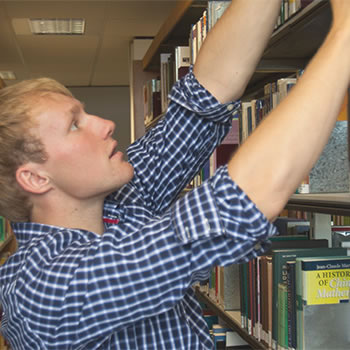
Studying
The Library has all the resources and supports you need to be successful in your studies at undergraduate and postgraduate level. Whether you're just starting your studies or working on your final project, we're here to help.
- Teaching
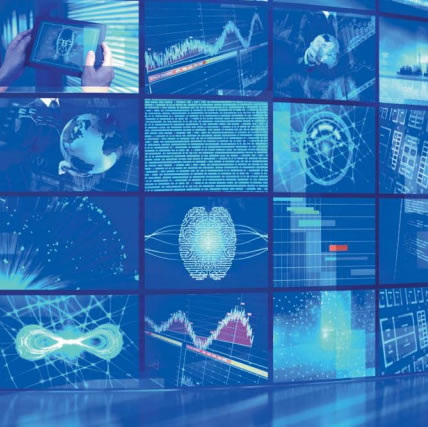
Teaching
We are here to help lecturers and academic staff deliver quality teaching and support their students' success.
- About
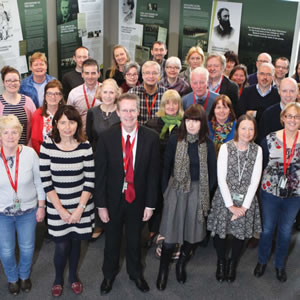
- Workshops & Events
Assistive Technology Area
Assistive Technology Area
Students with evidence of a disability, a physical or mental health condition, or specific learning difficulty can apply to the Disability Support Service (DSS).
Assistive Technology Area
The area offers support for users who require assistive technology due to a disability, ongoing physical or mental health condition, or learning difficulty.
The University's Disability Support Service works with the Library in providing a range of services including assistive technology to enable students to participate fully in their courses. The area also receives computer support from Information Solutions and Services.
The facilities are available to all students who are registered with the Disability Support Service.
Everyone is expected to respect the needs of all users and follow the ATS Code of Conduct.
If you have any suggestions for improvement regarding any aspect of our area, please email Disability Support: disabilityservice@universityofgalway.ie
Your suggestions can cover access, the physical space and its organisation, software, equipment, supports, or any other issues.
Accessible Format Resources
- All print-disabled students requiring material in alternative formats are recommended to register with NCBI Bookshare. Bookshare Ireland has the largest accessible digital Library in the country and is currently funded by the Department of Education and Skills, register here.
- SensusAccess
Applications
Available in all University PC Suites
MindGenius is a mind-mapping tool to help develop ideas and organise thinking. To access the tutorial, open Mind Genius, click the following and open the "Getting Started" manual.
Read & Write provides multi-feature literacy-support to assist students with their reading and writing. Unique functionalities include text-to-speech, phonetic spell checker, word prediction, speaking dictionary and a scanning facility. There is an easy to use toolbar that 'floats' on top of any open application. See video tours.
Available in the Assistive Technology Area
Dragon Naturally Speaking (DNS) is voice recogniiton software. The user dictates and the words are transcribed onto the screen and into word documents, emails, etc. This application will also play back dictation for editing and proofreading.
JAWS (Job Access with Speech) is screen-reading software designed to assist blind or visually impaired computer users to access information. The screen reader enables the user to read and write MS Word and Excel documents, browse the web, send and receive emails and access databases.
ZoomText is a screen reader and magnification package for people with low vision. It combines large print and screen reading when using Windows.
Equipment
The following equipment is provided: zeta book scanner, adjustable footrests, magnifiers, and daylight desk lamps.
The Disability Support Service issues other equipment to students as necessary. For example:
- Caption.Ed
- C-Pen Reader
- Echo Smartpen
- Glean
- Grammarly
- JAWS
- MindGenius
- Olympus Digital Voice Recorder
- Read & Write
- ZoomText
Software available to all registered Student and Staff.
Helpful Websites
Listed below are links to the web sites of disability related organisations in Ireland and the UK, plus a few from Europe. The notes about each site are generally taken from the pages of the sites themselves.
- AbilityNet: Offers a range of services on the use of information technology.
- Access West: Aims to provide access to information that is up-to-date, accurate, relevant and above all empowering.
- Accessible Information for All
- Action on Hearing Loss: UK charity aiming to achieve a better quality of life for deaf and hard of hearing people.
- AHEAD: The web site of the Association of Higher Education Access and Disability. Promotes full access to and participation in third level education.
- Aware: A voluntary organisation aiming to assist those who are directly affected by depression.
- BILD: British Institute of Learning Difficulties aims to influence policy makers, encourage good practice, and help people with learning difficulties take charge of their own lives.
- Brainwave – The Irish Epilepsy Association: The Association is concerned to improve the quality of life of people with epilepsy in Ireland.
- British Computer Association of the Blind: Organisation of visually impaired people who use information and communication technology.
- British Deaf Association: UK’s largest national organisation run by deaf people for deaf people.
- British Dyslexia Association: Aims for a dyslexia friendly society that will enable all dyslexic people to reach their potential.
- Career Resources for Americans with Disabilities
- Centre for Accessible Environments: Concerned with how the built environment can best be made or modified to achieve inclusion by design.
- Centre for Independent Living: Aims to empower and enable people with disabilities to achieve independent living, choice and control over their lives.
- Disability Action: Works to ensure that people with disabilities attain their full rights as citizens.
- Disability Federation of Ireland: National support organisation for voluntary organisations in Ireland who provide services to people with disabilities.
- Disability-federation.ie: Site for disability-related information in Ireland.
- Disabled World: Bimonthly magazine of international disability news and views.
- Disabled Living Foundation UK: Charity providing advice and information on equipment and assistive technology for independent living.
- Dyslexia Action: Educational charity for the assessment and teaching of people with dyslexia, and for the training of teachers.
- Dyslexia Association of Ireland: Aims to promote awareness of specific learning difficulties, and to help dyslexic people to realise their potential.
- Dyslexic: Reviews and sells a range of products, and has a range of articles on dyslexia.
- Enable Ireland: The social model of disability is central to the organisation's provision of services, and considers access, inclusion and equality as entitlements for people with physical disabilities.
- Equality and Human Rights Commission: Promotes equality and human rights in Britain, providing advice and guidance. Also aims to raise awareness.
- European Disability Forum: European umbrella organisation aims to ensure full access to fundamental and human rights through their active involvement in policy development and implementation in the EU.
- Fighting Blindness: Committed to finding treatments and cures for all forms of blindness and related sensory loss through the funding and promotion of Irish research..
- Galway Centre for Independent Living: Seeks to empower those with physical, sensory and emotional disabilities to take control of their own lives.
- Hearing LINK: UK charity aiming to improve the quality of life of those who are hard of hearing. Provides information and advice, provides communication access, and raises awareness.
- Humanity & Inclusion: UK site providing a range of information and resources for anyone with an interest in supporting disabled students in higher education.
- Independent Living Institute: Offers resources for people with extensive disabilities and develops consumer-driven policies for self-determination, self-respect and dignity.
- Institute for Design and Disability: Provides information on how to remove barriers that exclude people with disabilities from taking an active part in everyday life.
- Irish Deaf Society: National organisation of deaf and hard of hearing people.
- Irish Wheelchair Association: National organisation of people with limited mobility.
- JISC TechDis: Accessibility in learning resources designed to enable staff to create effective, engaging and accessible learning materials for their learners.
- Mental Health Foundation: Largest UK website on mental health. Foundation aims to help people survive, recover from and prevent mental health problems.
- Mental Health Ireland: National voluntary organisation that aims to promote positive mental health and to actively support persons with a mental illness, their families and carers by identifying their needs and advocating their rights.
- Microsoft Accessibility: Presents the accessibility options in Microsoft products.
- Mind: Mind is the leading mental health charity in England and Wales.
- MS Ireland: The Multiple Sclerosis Society of Ireland
- Muscular Dystrophy Ireland: Provides a range of support services to persons with neuromuscular conditions and their families.
- National Association for Deaf People: Campaigns for full equality in all aspects of life for deaf and hearing impaired people.
- National Council for the Blind of Ireland: The major organisation in Ireland for the visually impaired.
- Rehab: Independent organisation that provides training, employment, social care and commercial services in Ireland and the UK.
- Royal National Institute of the Blind: The UK's leading charity offering information, support and advice to people with sight problems.
- Scope: Focuses on people with cerebral palsy.
- Sense: Organisation offering advice and services to the deaf and blind.
- Skill: National bureau for students with disabilities. UK charity promoting opportunities for young people and adults with any kind of disability in post-16 education, training and employment.
- Studying in the UK with a Disability: This is an information and news publishing website about the United Kingdom higher education and latest news that concern international students in the UK, as well as a publisher of a large number of helpful informational content and exclusive research about international students in the UK.
The list does not claim to be exhaustive, so if you come across any web sites that you consider useful, please contact disabilityservice@universityofgalway.ie
Location
We are located on the ground floor of the Library.
The main entrance of the Library can be accessed via a lift which is located on the concourse of the Arts/Science Building. When inside the Library building, students have lift access to all floors.
Students with a physical disability or mobility difficulties can also obtain access to the Library from the basement level. Access can be authorised upon request when you register with the Disability Support Service.
Wheelchair accessible toilets are available on the ground floor and on the first floor of the Library.
A hearing loop system is installed at the Library & IT Desk.
Study Spaces
General
General study spaces are available in a large open-access area with computers and height-adjustable study desks. Specialist assistive technology equipment including CCTV machines to magnify the pages of books and other documents, a Zeta Book Scanner and a low-level photocopier, and daylight desk lamps are all located in this area.
Soundproof Booths
There are three sound-proof booths, each of which is equipped with a computer, and a height-adjustable desk.
The booths will accommodate 1 person or 1 person and their personal assistant (so that users are able to work with the help of a personal assistant). Students may reserve booths in advance by using the online system.
A maximum stay of two hours per study session applies, and students requiring specific software applications have priority. The booths are also used for exams.
Supports
The Assistive Technology Officers provide a range of support for users:
- All print disabled students registered with Disability Support Services can also avail of RNIB Bookshare which has access to over 1,043,098 titles in accessible format
- Extended loan periods and additional borrowing to undergraduate students registered with the Disability Support Service. (7 books for 14 days). No extension applies to 1- or 3-day loan books
- Texts in alternative formats: electronic text, audio, braille, enlarged text. Students requiring text in accessible formats must read and sign the University of Galway Alternative Format Process and the University of Galway Copyright Disclaimer Form. It is important to discuss and agree the format and standard of editing necessary as early as possible. The current University of Galway process is outlined in Textbook Conversion to Accessible Formats. Accessible format text editors use the Ahead Guidelines for editing scanned text.
- Training and ongoing support in the use of assistive technology applications. A training schedule for new students is put in place at the beginning of the academic year, and one-to-one training is provided on request




-(1).jpg)








